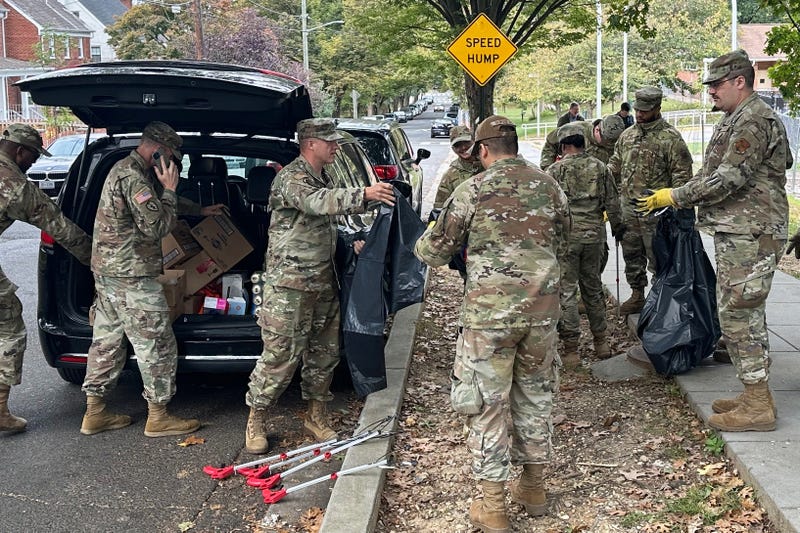
A judge on Monday allowed the continued deployment of more than 300 West Virginia National Guard members to patrol the streets of Washington, D.C., as part of President Donald Trump’s push to send the military into Democratic-run cities.
Kanawha County Circuit Judge Richard D. Lindsay made the ruling after hearing arguments in a lawsuit by a civic organization that argued Republican Gov. Patrick Morrisey exceeded his authority when he authorized the Guard’s deployment in August.
"The question before this court is whether or not state law allows West Virginia to do this,” Lindsay said. “The court has found that.”
The judge added: “This court believes that the federal law allows for the request made by the president to the governor,.
West Virginia is among several states that sent National Guard members to the nation’s capital. While the state National Guard has said its deployment could last until the end of November, it is consulting with the governor’s office and others on the possibility of extending the stay.
Formal orders were issued last week extending the deployment of the District of Columbia's National Guard in the city through the end of February.
“We are pleased with the judge’s decision,” Jace Goins, the state’s chief deputy attorney general, said outside the court in Charleston. “The National Guard are going nowhere. They’re staying in D.C. They’re not going to be redeployed to West Virginia.
“The judge made the determination that the governor made a lawful decision deploying the National Guard to D.C. by a lawful request of the president.”
The West Virginia Citizen Action Group, which filed the lawsuit, argued that under state law the governor could deploy the National Guard out of state only for certain purposes, such as responding to a natural disaster or another state’s emergency request.
The civic group claimed that it was harmed by the deployment by being forced to refocus its resources away from government accountability and transparency. The state attorney general’s office sought to reject the case, saying the group has not been harmed and lacked standing to challenge Morrisey’s decision.
"It was a simple issue of a broad, lawful request by the president and a lawful deployment by the governor. That’s all,” Goins said.
Aubrey Sparks, an attorney for the American Civil Liberties Union’s West Virginia chapter, said she didn’t believe it was the correct decision.
“I think that West Virginia law is clear,” Sparks said. “I think what the state was permitted to do here is to skirt past West Virginia law simply because Trump asked them to. And that’s not how the law works. We remain deeply concerned about it.”
Trump issued an executive order in August declaring a crime emergency in the nation’s capital, although the Department of Justice itself says violent crime there is at a 30-year low.
Within a month, more than 2,300 Guard troops from eight states and the District of Columbia were patrolling under the Army secretary’s command. Trump also deployed hundreds of federal agents to assist them.
Separately, a federal judge heard arguments Oct. 24 on District of Columbia Attorney General Brian Schwalb ’s request for an order that would remove National Guard members from Washington streets. U.S. District Judge Jia Cobb, an appointee of former President Joe Biden, did not rule from the bench.